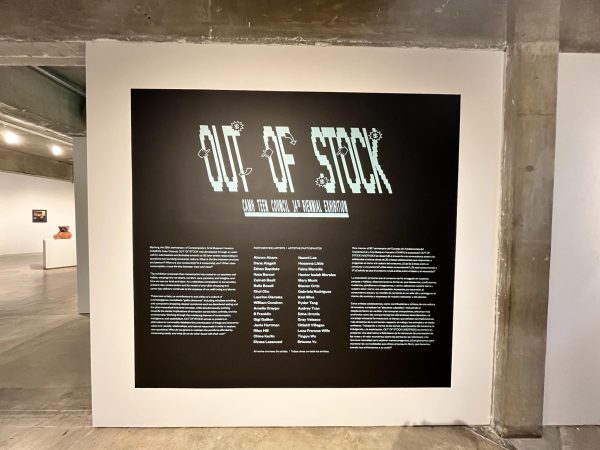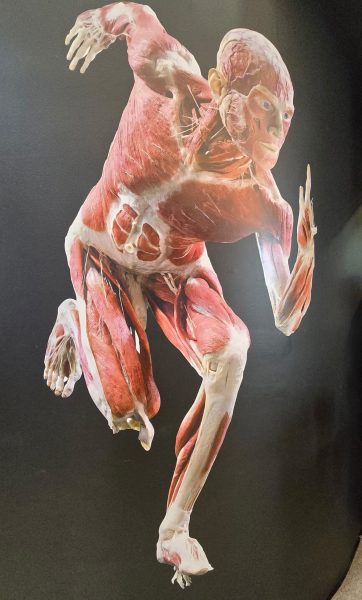Staying with Taylor Swift: a lesson in perspective shifts
Taylor Swift sang the national anthem at the Yankee Stadium in 2008 and recently received an honorary doctorate from NYU at the same stadium. Photo courtesy of Getty Images and Stephen Yang.
With the series of surprise re-recordings of past albums, Taylor Swift has made it clear that she is not the same hometown country singer she used to be. She is an ever-evolving person whose perspective and beliefs change as she matures and gets older. This is reflected in Swift’ songwriting, which shows that she has gone from begging her partner to stay (stay stay) to herself leaving out the side door. Swift has become notorious for creating different “eras” for every new album, reinventing herself and her music with each new release. In typical Taylor fashion, just like how the “old Taylor” died in reputation, her songwriting emphasizes her personal changes, specifically how New Taylor’s perspective on staying in a relationship has undergone a stark shift in the past decade.
Taylor Swift, 2006
In 2006, Taylor released her first album, Taylor Swift. At 17, the album sounds like a personal diary. Through her storytelling, Taylor establishes her hatred for leaving relationships and her desperation for the other party to stay.
“A Perfectly Good Heart” demonstrates her inability to comprehend why her lovers would leave their relationship. Swift states that, “no matter what you say, [she] still can’t believe that you would walk away”, illustrating her reluctance to understand the other “leaving” side of her relationship. At this point in her life and songwriting, she sees leaving and staying as binary, with staying being good and leaving being bad. In this song, she discusses the “distance in your eyes”, indicating the slow demise of this relationship, with her partner being the one to slowly back away, while she “should’ve seen the signs”, and, “should’ve read the writing on the wall” that this relationship was burning out.
This theme is continued in the 5th song on her self-titled album, “Cold As You”. In this song, she is fed-up and asking her partner to, “just walk away,” because there, “ain’t no use defending words that you will never say”. Swift is exhausted in this relationship with hearing lies from her partner about their “love” disguised as the truth, and is begging them to stop wasting both of their time with meaningless words to make her feel better, when she is already so drained, “counting all the scars you made”. She was in love while her partner was feigning attraction, leading to her proclaiming that, “you never did give a damn thing, honey, but I cried, cried for you, and I know you wouldn’t have told nobody if I died, died for you”, explaining the one-sided nature of this relationship and how she stayed despite the hurt caused by her partner’s neglect.
Fearless, 2008
Swift’s second album presented both a modified sound, with “Love Story” and “You Belong With Me”, and presented a new Taylor, who believed that her crush not liking her back was a move in the wrong direction.
In 2006, the thought of her partner leaving their relationship was something she could not comprehend. However, in her Fearless era, she begins to do a 180, wishing that her crush would leave the relationship he is currently in for Swift. This is most notable in the title track “You Belong With Me”, where Swift declares that she is the one who understands her crush the best and how they know each other so well, or at least better than the cheer captain (from the music video). However, tracks like “Forever & Always” feature old Taylor. With lyrics like “Did I say something way too honest, made you run and hide, like a scared little boy,” Swift revisits the concept of leaving a relationship; to Swift, her partner leaving their relationship is cowardly “cause [she] was there when [he] said, ‘Forever and always’.”
Speak Now, 2010
Fresh off the heels of accusations that she didn’t write her own songs, Swift wrote the entirety of her third album, Speak Now, by herself in 2010. This album furthers her established narrative of being the one that stays in relationships, constantly being left behind. At this point she is pleading “c’mon, c’mon don’t leave me like this” in “Haunted”. In this, she states that she “won’t lose you again” (referring to her partner), leading to the conclusion that this has happened before with the same person whom she does not want to rid herself of, despite previous instances of “losing” them. She begins the song with the phrase, “you and I walk a fragile line, I have known it all this time, but I never thought I’d live to see it break”, indicating her knowledge of the volatile nature of this relationship, yet also her naivete regarding the longevity of relationships such as these, despite her experiences with break-ups described in her previous albums. Swift continues to explain how “something keeps [her] holding onto nothing”, finally putting the part she plays in the “leaving/being left” narrative into words. Before Speak Now, Swift had hinted at this notion of her role in the dynamic in 2008 with “Forever & Always”, however she had never directly stated that she is actively staying in these doomed, one-sided relationships, holding onto unraveling thread until her third studio album. With this aspect of the relationship between her and staying finally quantified, she is allotted the opportunity to look within herself, with this era being the first we see of her self-reflecting on her side of this dynamic. This gives way for her future growth and ability to shift the perspective on “staying” in her discography to achieve and demonstrate a more well-rounded personal view on staying and leaving.
Red, 2012
In Taylor’s 2012 album Red, she experiments with new sounds and nearly delves into the pop genre with songs like “We Are Never Getting Back Together”. However, Swift leaves room for the old Taylor with songs like “Stay Stay Stay”. In this song, Swift writes about an ideal relationship, where after having an argument with her partner, she tells her lover to stay (nearly 30 times, so practically begging). In the end, instead of the dramatic breakups that Swift is familiar with, both Swift and her partner stay in the relationship and they resolve their problems. Swift has had many partners leave her and at this point, she begins to fantasize about her ideal relationship where someone finally stays.
1989, 2014
In her homage to her birth year, Swift jumps onto a whole new genre train and intertwines a new narrative into her storytelling: addressing the media’s remarks on her dating life. Despite this being the message of title tracks “Black Space ” and “Shake It Off”, Swift continues to weave the idea of staying in a relationship into her songs. “All You Had To Do Was Stay” presents the alternate ending of “Stay Stay Stay”. In this piece, Taylor’s partner left the relationship despite her giving and loving so much.
Reputation, 2017
In her sixth studio album, Reputation, Swift continues to develop the New Taylor from 1989, releasing new sounds with “Look What You Made Me Do.” After a decade of seeing partners leave her, Swift is now the one who wants to leave the relationship. In “Getaway Car”, she writes “I wanted to leave him, I needed a reason”. In the song, she paints the story that she has realized that her current relationship is beyond repair and she is trying to escape rather than stay, representing the shift in her staying-in-a-relationship narrative.
Lover, 2019
By the time of her 7th studio album, Lover, Swift had reached a point of complete disillusionment with the concept of staying and leaving relationships. Throughout her decade long career, she had become all too well-versed in this dynamic. She introduces this concept in the song “The Archer,” questioning, “Who could ever leave me darling, but who could stay?” She has gotten to a point of reconciling this paradox she has become complacent in for so long, going from asking her lovers how they dare leave her and then turning around to ask how they could ever stay. She has been hurt countless times in the past by being left and has recently been the one to leave in reputation, causing her to truly start
Folklore, 2020
With the release of Swift’s surprise album Folklore in 2020, Swift had begun exploring characters that are detached from herself and her experiences. Despite this, she can’t help but revisit her favorite leaving/staying trope. She discussed this in the duet song “Exile”, saying, “So now I’m leaving out the side door” which was followed with Bon Iver telling her, “So step right out.” She does a complete 180; this time, she’s the one being proactive and leaving while her ex is the one who’s angry with her leaving.
Evermore, 2020
In Swift’s most recent album, Evermore, she ties both old Taylor and new Taylor’s perspectives on staying and leaving a relationship to the theme of abandonment. “champagne problems” is Swift’s ode to her past self’s fear of leaving relationships. In the piece, Swift crams in details from the night her partner almost proposed, singing, “I dropped your hand while dancing left you out there standing crestfallen on the landing champagne problems.” Swift’s relationship up until this point had been going well. However, when Swift decided to reject the proposal and leave, everything went downhill, showing that her fear of leaving is multifaceted.
B-side “right where you left me” addresses old Taylor’s hatred of leaving relationships. Lyrics like “But I’m right where you left me” and “Help, I’m still at the restaurant still sitting in a corner I haunt” reflect how her past partners leaving her has affected her. When they leave, she is frozen, paralyzed by time.
From Taylor Swift to Evermore, Swift has shown a blatant change in her perspective when it comes to choosing to stay or leave a relationship. Through her songs, she has shown listeners that she has gone from hating when people leave relationships and being hesitant to leave herself to choosing to be the person who leaves first.
Your donation will support the student journalists of Carnegie Vanguard High School. Your contribution will allow us to cover our annual website hosting costs and fund field trips, competition fees, and equipment. We appreciate your support!

Current senior Nicki is a writer for the Upstream who also manages the site. She loves Micheal Cera and has never not cried while watching Mamma Mia! and...









Zainab Zaman • May 23, 2022 at 2:36 pm
This was so well done!Loved the song references